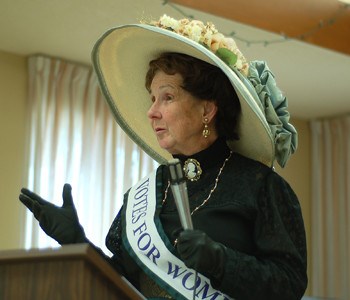Many women in Ontario don’t know their rights under family law says the co-ordinator of a women’s legal education project.
Lisa Cirillo heads Family Law Education for Women, a group determined to educate Ontario’s women about areas such as custody and access, marriage and divorce and property rights. Cirillo said it’s important for women to know their rights so that they can make better choices for themselves and their children.
"These are all really important rights that we’ve worked long and hard for to make sure women have under Canadian public family law and we want to make sure that women know that they have these rights," Cirillo said.
Cirillo spoke in Thunder Bay Tuesday at the Oliver Road Community Centre. She said FLEW is providing information for women in 14 languages and is specified for religious and cultural differences. She said women who are new to the country with language and cultural barriers, have geographical barriers or are in poverty in particular can have problems accessing family law.
"The law itself isn’t very accessible it’s written in sort of an archaic language and it’s difficult for people who do not have legal training to pick up a statute and understand it so what we’re trying to do is bridge that gap," Cirillo said.
Poverty remains one of the most problematic barriers for women Cirillo said. The information provided by FLEW is not recommended as a self-help guide to family law. The group still recommends individual legal counsel which can be difficult to get when faced with poverty she said.
"The reality is for women who cannot afford legal assistance the ability to access to individual legal representation is dwindling," Cirillo said. "It is a challenging issue…there is not enough publicly funded legal aid available for women in Ontario today."
Even if a woman does not need to know family law for herself, Cirrillo said it’s important to learn about because a mother, sister or friend could be in need.
